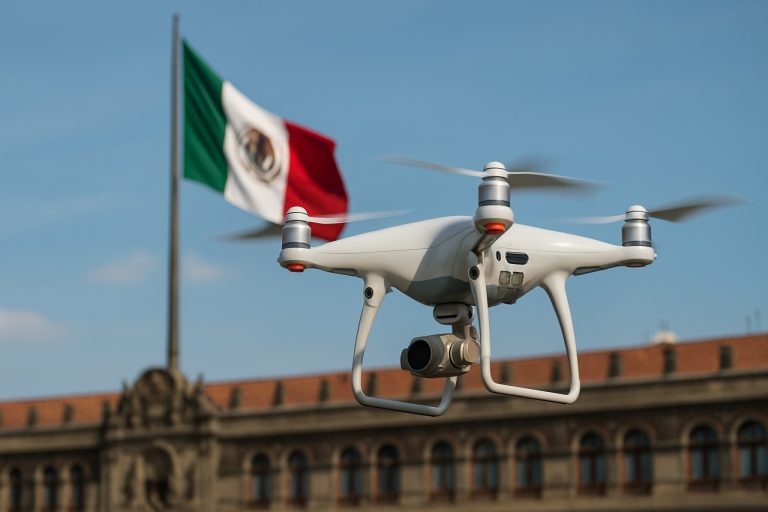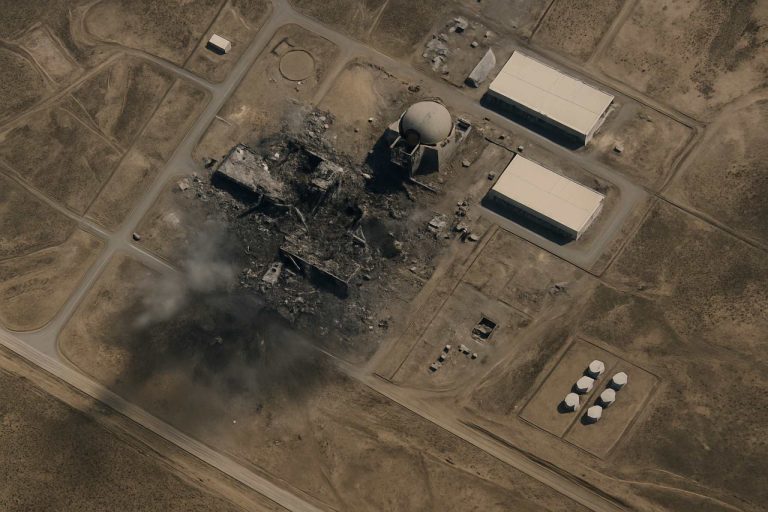
- Adam Conover promoted, then retracted support for Worldcoin, a cryptocurrency project by Sam Altman that requires iris scans for participation.
- Worldcoin aims to create a global digital currency but raises significant privacy risks, surveillance concerns, and ethical issues regarding biometric data collection.
- The backlash spotlights the influence of tech leaders and celebrities, and emphasizes the need for skepticism when evaluating tech and crypto innovations.
- This incident demonstrates that even trusted public figures can make mistakes, highlighting the importance of transparency and cautious research.
- Users should carefully consider privacy implications before engaging with new technological initiatives demanding sensitive personal data.
Regret clings to social feeds like morning mist after Adam Conover—the sharp-tongued host prized for unraveling common misconceptions—confessed he’d helped promote a cryptocurrency venture shrouded in controversy. The comedian, best known for “Adam Ruins Everything,” found himself at the heart of heated debate after briefly championing Worldcoin, the ambitious project driven by Silicon Valley heavyweight Sam Altman.
Conover produced a video touting Worldcoin’s vision: a global digital currency system, built on a futuristic promise and an iridescent sphere. The kicker? Biometric data. To join, users submit to a scan of their irises—an act that, for many, evokes the kind of dystopian anxiety more suited to Black Mirror than to personal finance.
Almost immediately, watchdogs and experts chimed in with grave concerns. Critics raised alarms about privacy risks, potential for surveillance, and ethical dilemmas swirling around collecting and storing sensitive biometric information. The broader crypto world, already rocked by notorious scandals and regulatory crackdowns, watched with raised eyebrows.
Conover responded to the backlash swiftly. He retracted the video, labeling his endorsement as “one of the dumbest things” he’d ever done—a blunt self-assessment rarely seen in the realms of celebrity and influencer culture. His remorse stirred conversations about the seduction of big tech, the power of influencers, and the thin line between innovation and exploitation.
Outside the drama, the Worldcoin experiment presses on. Led by Sam Altman—known for spearheading OpenAI and its advances in artificial intelligence—the project claims to offer universal access to the global economy, hinting at a future where technology erases barriers. Yet this vision demands something intimate in return: the shape of your very eye.
For everyday users, the lesson lands hard. Even trusted voices can make missteps in the mercurial world of crypto and tech. Transparency, skepticism, and caution stand as essential shields. Before jumping into technological frontiers—especially those asking you to scan your most personal features—pause, question, and thoroughly research the risks.
The crypto revolution, dazzling and divisive, is just beginning. But as this episode shows, the brightest promises demand the sharpest scrutiny.
You Won’t Believe What Adam Conover Admitted About Worldcoin—Here’s What You Need to Know Now!
Adam Conover and Worldcoin: What Really Happened—and What You Must Know Before You Blink for Crypto
Unpacking the Controversy: Beyond the Source Story
Adam Conover’s public apology for promoting Worldcoin cast a spotlight not just on influencer responsibility but also on larger, unresolved issues swirling around cryptocurrencies that collect biometric data. Here’s the full picture with hard facts, industry trends, real-world risks, and advice you can use right now.
—
Worldcoin: Features, Vision & Specs
– Founder: Sam Altman (CEO of OpenAI), a major figure in AI and tech.
– Biometric Onboarding: Requires iris scanning via the “Orb,” a proprietary device, in exchange for WLD tokens.
– Goal: To create a universally accessible, decentralized currency and a biometric-based proof-of-personhood protocol.
Technical Specs
– Blockchain: Built on Ethereum Layer 2 (Optimism).
– Token: WLD (Worldcoin), tradable on several major exchanges.
– Orb Hardware: Custom-built, portable device equipped with advanced cameras to capture high-resolution iris imagery.
– Participant Numbers: As of 2024, over 5 million people reportedly registered across more than 30 countries (source: Worldcoin).
—
How It Works: Step-by-Step
1. Locate an Orb Operator: Find a verified operator via the Worldcoin map.
2. Visit for Scan: Present yourself in person; your iris is photographed and encoded.
3. Get Unique ID: The system generates a World ID cryptographic hash.
4. Claim Tokens: Receive free WLD tokens upon onboarding, meant as an incentive for early users.
5. Use Cases: Access universal basic income pilots, verify identity for online services, and transact on the blockchain.
—
Recurring Criticisms & Controversies
Privacy & Ethics
– Biometric Data Storage: Concerns regarding if and how raw data is stored, anonymized, or used for surveillance. A June 2023 report from MIT Technology Review flagged gaps between public statements and privacy practices.
– Global Inequality: Critics say Worldcoin’s rewards have targeted populations in lower-income regions, raising possible exploitation concerns (source: BuzzFeed News).
– Government Scrutiny: Several regulators (France’s CNIL, Germany’s BfDI) have launched investigations into data handling by Worldcoin (source: Reuters).
Market & Tech Limitations
– User Accessibility: Currently, many regions lack Orbs or operators, limiting true “global” access.
– Token Volatility: WLD price has seen extreme fluctuations, typical of new crypto launches.
—
Real-World Use Cases & Life Hacks
– Universal Proof-of-Personhood: Could reduce online fraud, improve voting systems, and enable pseudonymous access to services.
– Borderless Payments: International remittance with minimal fees.
How-To Participate Safely:
– Always read official privacy policies (see Worldcoin).
– Use private digital wallets, not custodial ones, to store WLD tokens.
– Wait for wider regulatory approval before investing substantial funds.
—
Industry Trends, Reviews, and Comparisons
– Growing Biometric Ecosystems: Other projects (e.g., Idena) use biometrics for identity but with less intrusive methods.
– Crypto Market Forecasts: Biometric-backed crypto projects are expected to attract both investment and regulatory scrutiny; not all will survive beyond 2025.
– Pros & Cons:
Pros:
– Could provide financial inclusion for the unbanked.
– Innovative approach to Sybil resistance in global systems.
Cons:
– Irreversible if breached (you can’t change your iris!).
– Often targets vulnerable populations.
– Unclear legal or financial protections if project fails.
—
Security & Sustainability Insights
– Security: If Worldcoin’s hardware or servers are hacked, massive personal data could be compromised—the stakes far exceed standard password hacks.
– Sustainability: The company claims the Orb is built to last, but collecting biometric data at scale requires significant resources, and e-waste may become an issue as hardware upgrades roll out.
—
Key Questions Readers Want Answered
1. Is iris scanning safe?
– Biometric scans are generally safe physically, but misuse of digital data is a grave concern. There are currently no universal standards about how your iris data must be handled or deleted.
2. Do I have control over my data?
– According to Worldcoin, raw iris photos are deleted by default, but this has been disputed by independent auditing. Always double-check regional legal protection (GDPR if in EU).
3. Will I get rich from WLD tokens?
– Unlikely. As with all new crypto, large-scale early giveaways dilute value, and token prices are highly volatile. No guarantee of profits.
—
Actionable Recommendations & Tips
– Don’t Rush Into Biometric Crypto: Wait for independent security audits and regulatory findings on Worldcoin and rivals.
– Protect Your Privacy: Never scan your iris or face for crypto without fully understanding risks and reading all terms.
– Diversify: Don’t put significant money, personal data, or trust into a single project—especially one under widespread scrutiny.
– Stay Informed: Watch for updates from major authorities (e.g., EFF, CNIL, FTC) and follow coverage at trusted sites like Coindesk or Cryptonews.
—
Final Word
Worldcoin’s futuristic ambition comes with unprecedented risks, especially for your most personal data—your biometrics. As Adam Conover’s regretful episode underscores, influencer endorsements are no substitute for your own research and caution. Pause, scrutinize, and always prioritize your privacy in every digital frontier.
—
Keywords: Worldcoin, Adam Conover, biometric crypto, Sam Altman, iris scan, blockchain, privacy, crypto controversy, proof-of-personhood, WLD crypto, influencer marketing crypto, crypto market trends
For further reading or official information, visit Worldcoin and OpenAI.



